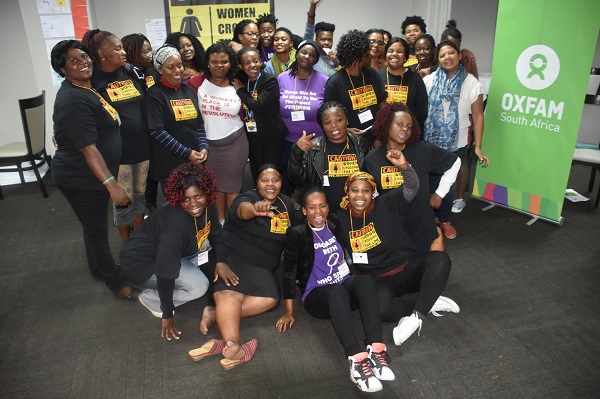HIV/AIDS: What Does “Access” Really Mean?
The 21st International AIDS Conference kicked off in Durban, South Africa, and gathered 18,000 people including scientists, researchers, policymakers and celebrities around the theme, Access and Equity. However, the conference’s high registration and participation fee meant that the majority most affected by HIV particularly, poor women, were excluded from attending.
Seeing the conference as a missed opportunity to ensure that the voices of those most affected by this issue influence global priorities on HIV/AIDS, JASS and Oxfam teamed up to convene and participate in various pre-and-post conference events. They produced a statement, Whose Conference Was It Anyway?; convened a parallel space, Amplifying HIV-positive Women’s Voices,” dedicated to HIV+ women from the region who are leading grassroots solutions to the crisis; and participated with other organizations in forums, 2000-2016: South Africa’s Transformation of its HIV Treatment Program, and Women’s Economic Empowerment (WEE) with UN Women & WIEGO (Women in Informal Employment: Globalizing and Organizing). The WEE meeting also acted aspart of defining an agenda for the Kilimanjaro initiative. The Kilimanjaro Initiative is a rural women’s mobilization from across Africa towards an iconic moment at the foot of Mt Kilimanjaro in October 2016.
Through these dialogues, various questions inclduing what ACCESS really means when it comes to HIV/AIDS have been raised. Below are some of the reflections:
- Access goes beyond just getting medicine. It’s access to quality and affordable medicine that promotes the overall wellbeing and health care of those most affected by HIV/AIDS.
- Those most affected should be front and center in conversations that involve them in order to contribute their experiences, knowledge and perspectives in broader discussions on HIV/AIDS.
- Getting to the root of HIV/AIDS also involves examining POWER, in particular invisible power—the cultural norms and values that perpetuate this disease, for example, what makes it hard for women to negotiate sex in relationships? As well as social and economic inequality that fuel unequal infection rates.
While seemingly new, these are some of the questions and considerations that led us to set out to equip HIV-positive women to lead the solutions back in 2007. Our training and accompaniment in Malawi culminated into Our Bodies, Our Lives (OBOL) Campaign, a nation-wide grassroots organizing effort for better Antiretrovirals (ARVs) initiated by women living with HIV in 2012. The women leading the campaign have worked together to develop mobile ARV clinics to reduce women’s travel time and costs, provide land for women to cultivate, offer access to credit and seed coupons, and organize local campaigns to stop violence against women. JASS has helped to build this campaign with our partner, Malawi Network of Religious Leaders Living with or Affected by HIV and AIDS (MANERELA+) and COWLHA (Coalition of Women Living with HIV/AIDS).
The fight continues, as one of the activists from OBOL says, “We need to know that we have the power within ourselves, that we have rights, and we have to advocate for change that is right for us. Women have the within themselves, but alone, we can’t make big changes. We can come together to do something great.”


























